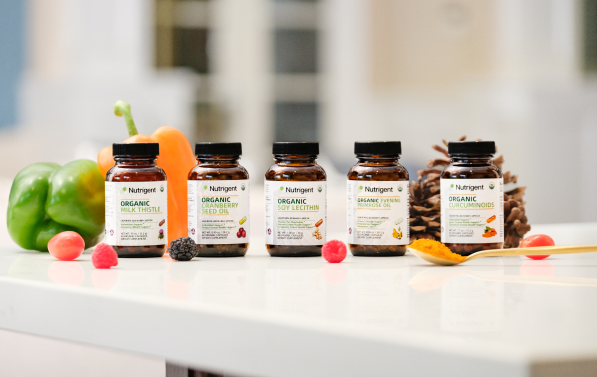Free Ship Over $75
15% OFF First Order
-
Shop
NEW & NEATURED
SHOP BY HEALTH BENEFITS
-
About Us
-
Shop
NEW & NEATURED
SHOP BY HEALTH BENEFITS

-
About Us
Free Ship Over $75
15% OFF First Order



Lutein and zeaxanthin are the two primary carotenoids found in the human eye, particularly concentrated in the macula and retina. They play a crucial role in maintaining vision and overall eye health. A deficiency in lutein may lead to macular degeneration, blurred vision, and an increased risk of age-related eye diseases such as age-related macular degeneration (AMD) and cataracts. Certain groups, including individuals who spend extended hours in front of screens, children and teenagers, older adults, diabetics, hypertensive patients, and infants who are not breastfed, may require additional lutein intake.
Foods rich in lutein include egg yolks, spinach, kale, corn, orange peppers, kiwifruit, grapes, zucchini, and pumpkin. However, modern dietary habits often lead to insufficient lutein consumption. In addition to dietary sources, professional nutritional supplements can help ensure adequate lutein intake.

Scientific studies show that lutein helps filter harmful blue light, reduce oxidative stress in the macular region, and protect eye tissues from sunlight damage. Lutein also enhances visual acuity and contrast sensitivity, making your vision sharper and clearer.
Lutein supplements are commonly taken orally to help prevent eye diseases such as cataracts and AMD, a leading cause of vision loss in older adults. Oral lutein supplementation over a period of 36 months has been shown to improve some symptoms of AMD. Doses of 5 mg or more daily for at least three months, particularly when combined with other carotenoids and vitamins, appear to be more effective. Furthermore, a diet rich in lutein may lower the risk of developing cataracts.
However, lutein does not seem to halt the progression of AMD over time, and its benefits for individuals who already have cataracts remain uncertain.

According to the U.S. National Institutes of Health (NIH), an intake of up to 20 mg of lutein per day, either through food or supplements, is considered safe for adults. Adults can safely take 10–20 mg per day for up to three years. For pregnant and breastfeeding women, lutein is likely safe when consumed through food sources. For children, lutein supplementation at appropriate doses is considered safe; for example, a specific product containing 0.14 mg of lutein daily has been used safely in infants for up to 36 weeks.

Currently, no significant interactions between lutein and medications have been clearly identified. However, if you are taking any prescription drugs, consult your healthcare provider before starting lutein supplements.
Lutein may interact with certain other supplements: ①Beta-carotene: Taking beta-carotene and lutein together might reduce the absorption of either nutrient. ②Vitamin E: Concurrent use of lutein and vitamin E might lower the effectiveness of vitamin E.
Lutein is better absorbed when taken with high-fat foods. For this reason, lutein supplements formulated as oil-based softgel capsules are typically absorbed more efficiently by the body compared to dry powder capsules.
Customer Support: If you have any questions or need assistance, please contact our customer service team info@nutrigent.us. Our service hours are Monday to Friday, 9:00 AM to 5:00 PM.
DISCLAIMER: *These statements and any claims made about specific products on or through this site have not been evaluated by the Food and Drug Administration and are not intended to diagnose, treat, cure, or prevent any disease. This site is not intended to provide diagnosis, treatment, or medical advice, and all content provided is for informational purposes only.*